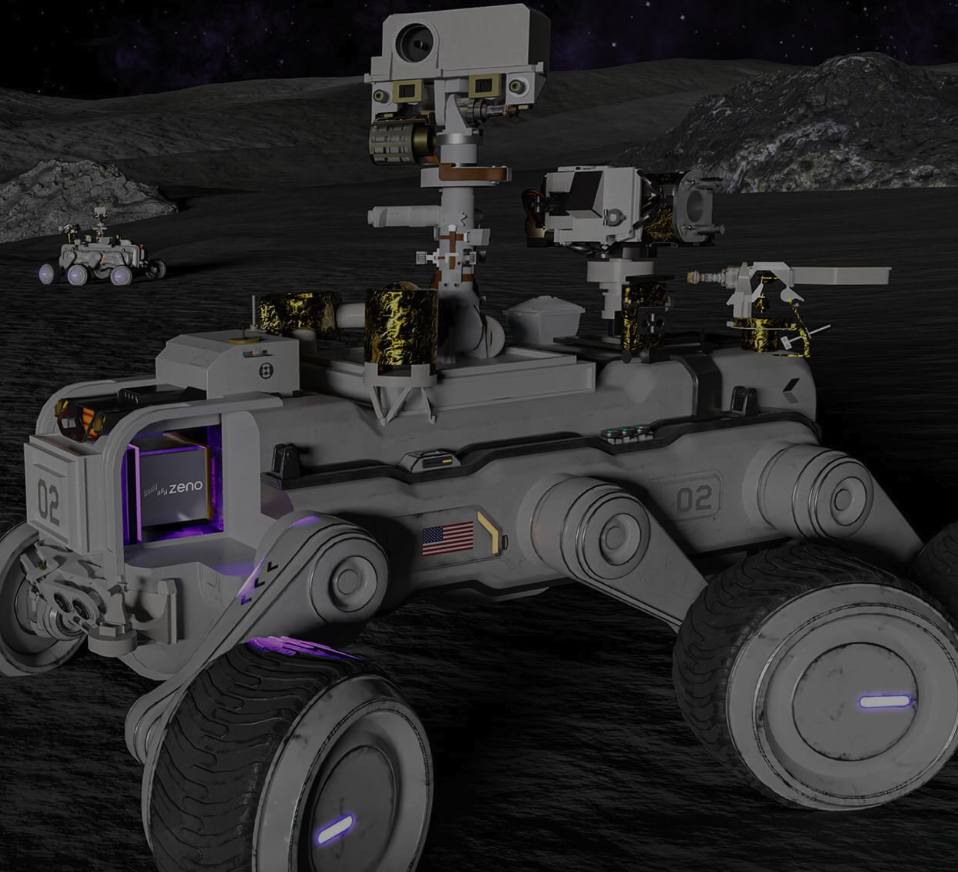
Zeno Power, a startup initiated through the Wond’ry, Vanderbilt’s Innovation Center, is one of 11 American companies to receive funding from NASA to develop technologies that could support long-term exploration on the Moon and in space for the benefit of all, according to a NASA release.
Zeno Power is leading a team that will receive $15 million to develop a space-ready radioisotope Stirling generator that will be fueled by americium-241 for use during NASA’s Artemis missions. Artemis is intended to reestablish a human presence on the moon; people were last there more than 50 years ago. For this new era of human space exploration with a goal of sustained lunar presence, missions need a long-lasting, reliable energy source to operate in permanently shadowed regions and to survive the two-week-long lunar night. Such a power source hasn’t been available commercially until now.
In addition to Zeno, the team—called Harmonia—includes Blue Origin, Intuitive Machines, NASA Glenn Research Center, NASA Marshall Space Flight Center, Sunpower Inc. and the University of Dayton Research Institute.
“Project Harmonia will provide the technology to transform the moon from a location darkened by night and shadow to one enlightened by science and exploration, ultimately for the good of the nation and humankind,” said Tyler Bernstein, co-founder and CEO of Zeno Power. “Zeno is excited to work with these industry leaders to bring both americium-241 and Stirling conversion technologies to the lunar surface for the first time.” Bernstein founded the company with two Vanderbilt alums, Chief Technology Officer Jake Matthews, MS’18, and Chief Operating Officer Jonathan Segal, BS’19.
A radioisotope Stirling generator uses a Stirling engine to convert heat into electricity, instead of traditionally used thermoelectric generators.
Radioisotope power systems are compact power sources that convert heat generated by the decay of radioisotopes into a constant supply of clean energy. RPSs for space applications have historically been powered by plutonium-238 from the U.S. Department of Energy, with a fuel supply chain sufficient to power NASA’s marquee missions. Using materials science and nuclear fuel manufacturing innovations, Zeno’s novel design provides additional fuel options by using radioisotopes that are currently categorized as nuclear waste. Americium-241 is a long-lived isotope with favorable thermal and radiation profiles that can complement current plutonium-238 based RPSs and enable not-yet-pursued mission classes, according to Zeno Power.

“Partnering with the commercial space industry lets us at NASA harness the strength of American innovation and ingenuity,” NASA Administrator Bill Nelson said. “The technologies that NASA is investing in today have the potential to be the foundation of future exploration.”
The funding is provided through NASA’s Space Technology Mission Directorate Tipping Point program. To be included, companies must demonstrate the investment will significantly mature the technology, increase the likelihood of infusion into a commercial space application and bring the technology to market for government and commercial applications.
With guidance from their Vanderbilt faculty mentor Steven Krahn, professor of the practice of nuclear environmental engineering, Zeno was established within the Wond’ry’s Founder Program in 2018 and joined the Wond’ry’s startup incubator, Launch, in 2022. The company raised $20 million in Series A funding in 2022 and recently won a $30 million project grant from the U.S. Department of Defense to design and build the first commercially developed RPS-powered satellite by 2025.
